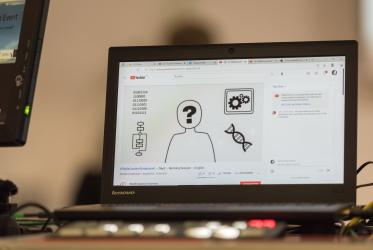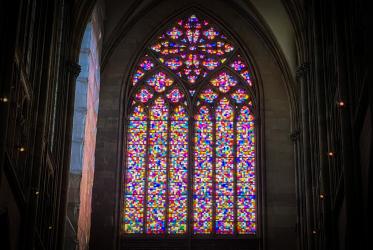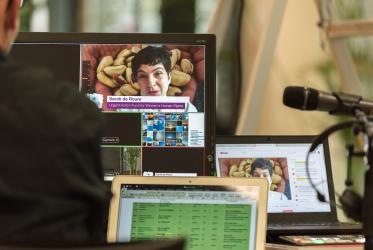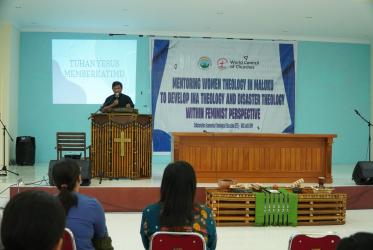In answering, speakers and participants also discussed the positive and innovative sides of being able to meet online to pray together, and still connect with friends, families and colleagues online.
Andreas Droste of the T-Systems Innovation Center reflected on lessons learned during the coronavirus pandemic and where digitalization might take us if we use an avatar and a virtual physical space that closely mimics physical offices, enabling more realistic collaboration.
“Additionally, in this virtual reality, you can come close to other avatars and speak to them compared to now in reality we need to keep a safe social distance to others,” said Droste. “As socializing is quite important for humans, this was one innovative way of overcoming the dilemma we are all in of not meeting physically.”
Prof. Dr Ilona Nord and Prof. Dr Thomas Schlag, authors of the international and ecumenical study “Churches Online in Times of Corona” spoke of understanding the church in the culture of digitality.
“The crisis shows the gap between poor and rich, between those who benefit from the crisis and those who have either lost their jobs or had to give up their self-employment,” said Nord. “Before the question of further technical development, the churches’ objectives must therefore be clarified.”
Schlag asked: “How can digital worship services, also in new formats, become new resonance spaces that offer life accompaniment? There is need for further pastoral training and theological reflection on a personal, pastoral, ecclesiastical and societal level as we move towards the high and broad acceptance of digital practice.”
Prof. Dr Heidi A. Campbell reflected on “The Digital Church: Looking beyond Covid-19.”
“People who are digitally savvy saw the opportunity to communicate and interact in more creative ways compared to others who were not digitally ready to transition to the new way of communication and interaction without the physical part,” she said. “The pandemic pushed churches towards the trend of consciously creating online-offline connections, becoming digital resource providers.”
Herald Schluter, deputy director of Domforum, offered a virtual tour of the Cologne Cathedral in a 360-degree virtual reality setting, an example of how tours and visitor’s programs could look in the future. The tour served also as an invitation for the next European Christian Internet Conference, scheduled to take place in Cologne in 2022.






